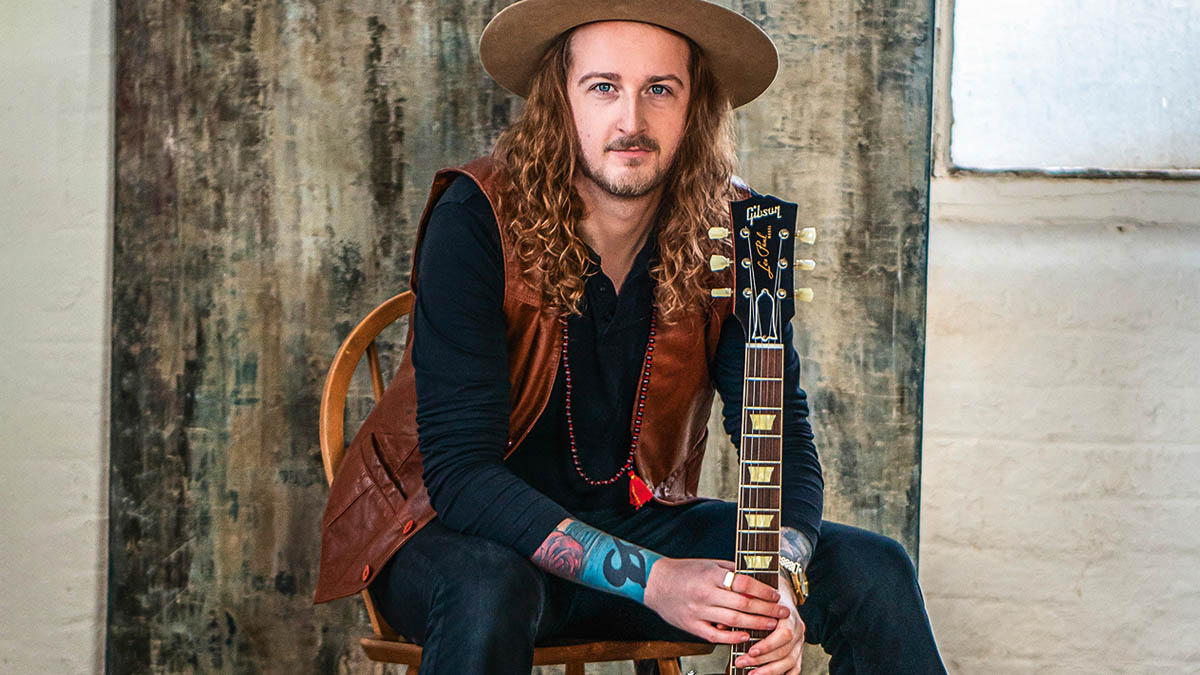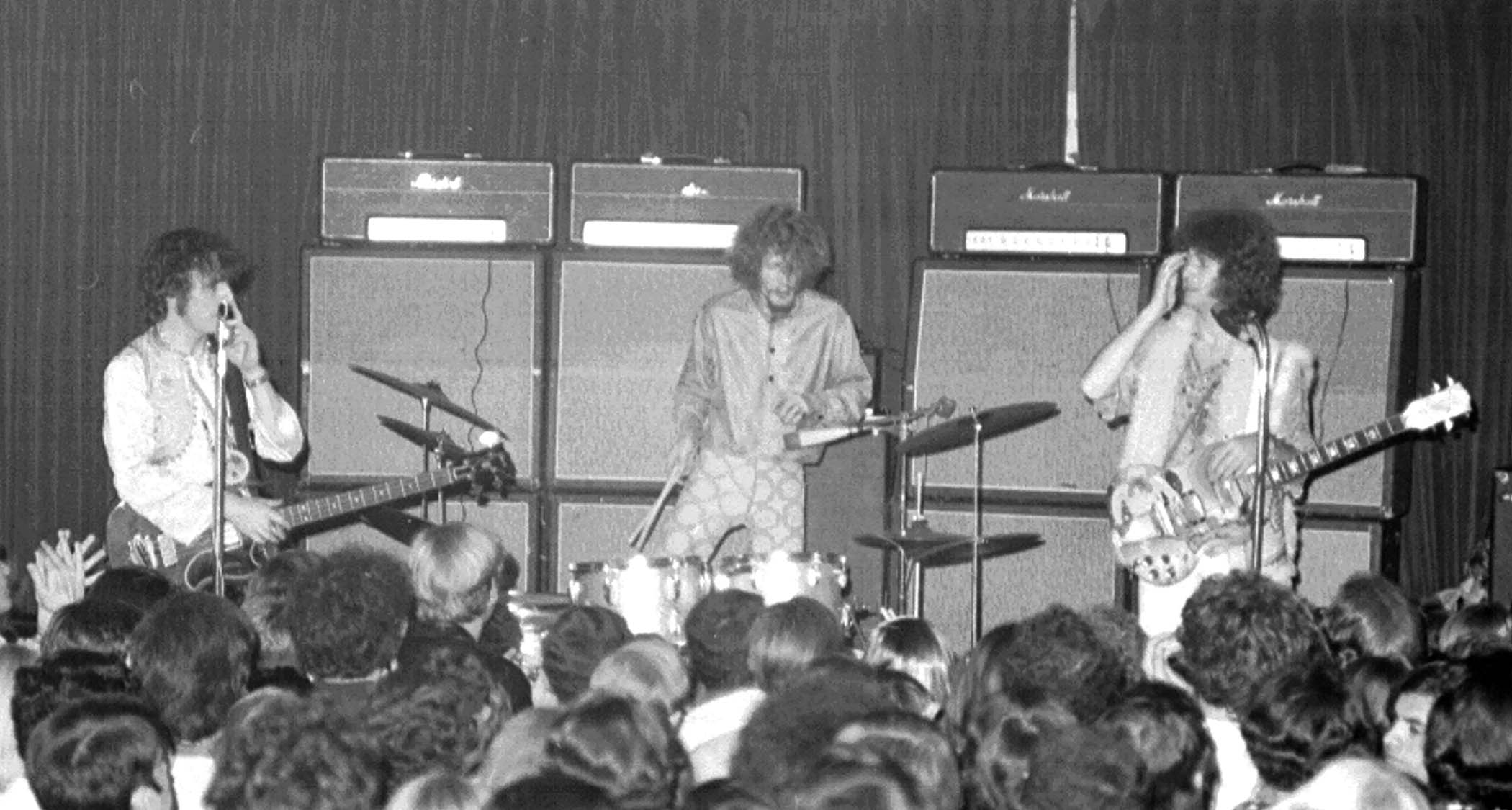“I got into ES-style guitars because of that scene in Back to the Future!”: How Chris Stapleton, the humble capo and Marty McFly shaped Ashley Sherlock’s breakthrough debut album
The Gibson artist discusses the guitars, approaches and songwriting philosophies that informed his debut record, Just A Name

All the latest guitar news, interviews, lessons, reviews, deals and more, direct to your inbox!
You are now subscribed
Your newsletter sign-up was successful
This is a big year for Manchester-based Ashley Sherlock and his band, with the release of this summer’s debut album, Just A Name, and his popularity soaring. With hooks, tight writing and a solid trio band, things look set for Sherlock.
“It’s great to finally get around to doing the album,” he says. “When you’re a kid, it’s the thing you think about and you always wonder if anyone would actually buy it. We had some success with some EPs, but with an album on a label, you’re competing with bigger people. And now it’s like, ‘Shit! It’s all getting real.’”
Space For Sound
Despite Sherlock's apprehension, the album is confident and the band felt no need to clutter things with multi-tracked guitar parts or unnecessary sounds. “The single, Dear Elizabeth, is one of my favorite tracks,” he tells us. “We all managed to encompass what I was feeling and Charlie [Rachael Kay, bass] and Danny [Rigg, drums] really got the memo. It’s very stripped back and there’s no other guitar underneath the solo.
“We really wanted to make it like this and the label said, ‘Keep it simple, don’t throw the kitchen sink at it,’ which was great. If you go all bells and whistles on album one, it makes number two pretty tough… We want to keep the songs honest but also [have] that steady progression, too.”
The Power of Three
A key part of the band’s sound is their trio setup – something that helps the songs to breathe.
“When you take everything away and keep [the song] in its basic form, you allow the listener to get involved without much to distract from the message of the song,” Sherlock explains. “We recorded everything as a trio and we’re basically a family. We talked about adding keys and whatnot, but then you’re in danger of sounding like everybody else. We wanted to keep it as a trio and hone that sound.”
Shaping The Song
When you see one singing guitarist in a trio setup, you may think they have to shoulder a lot of responsibility. But Sherlock is immediately modest about his role.
All the latest guitar news, interviews, lessons, reviews, deals and more, direct to your inbox!
“All of my songs are the same chords with different capos, basically,” he laughs. “I don’t try to think too much about what I’m playing. I remember listening to Chris Stapleton and seeing how he did it. From a songwriter’s perspective; it’s all about the lyrics and the melody, so it means on certain songs I’m effectively playing the electric guitar like an acoustic, with a capo.
“The progression would give me a handful of bars for a solo before we went back into it. Using the capo so much as an electric player isn’t that common, but playing the songs without it wouldn’t give me the sound I’m looking for.”
Seeing Red
An interesting member of Sherlock's gear collection is a sunburst Stelfox custom S-type. “It was was made by a man called Will Stelfox, who I met at a jam night in Manchester,” says the guitarist. “He’d heard about me and we discussed having a guitar made. It’s a beautiful guitar; I have a friend who has a '70s Strat and mine just smokes it!
“It used to be Fiesta Red – I’m a huge Mark Knopfler fan, so it had to be red – but the paint wasn’t aging that well and it was looking a bit scruffy through wear and tear. So I rang up Will and said, ‘You’re going to hate me, but can we strip it and do it sunburst like Rory Gallagher or John Frusciante?’ He just said no problem. He’d never done a sunburst before, but he nailed it.”
“I became a Gibson artist in 2019 and my go-to recording guitar is a 2018 Anniversary edition Gibson Les Paul Custom ’68 reissue – it’s all over our new record. It comes stock with the ’68 Custom ’buckers. It’s a real tone machine and it cleans up really well.
“I also play a black ES-345. I got into the ES-style guitars because of that scene in Back to the Future! This one is wired mono, rather than the usual stereo. It’s a really great, comfortable guitar, it feels like home. It has MHS II pickups and a vintage-spec’d Varitone – which is great for recording, but I never use it live!”
- Just A Name is out now via Ruf Records.
Glenn Kimpton is a freelance writer based in the west of England. His interest in English folk music came through players like Chris Wood and Martin Carthy, who also steered him towards alternate guitar tunings. From there, the solo acoustic instrumental genre, sometimes called American Primitive, became more important, with guitarists like Jack Rose, Glenn Jones and Robbie Basho eventually giving way to more contemporary players like William Tyler and Nick Jonah Davis. Most recently, Glenn has focused on a more improvised and experimental side to solo acoustic playing, both through his writing and his own music, with players like Bill Orcutt and Tashi Dorji being particularly significant.



